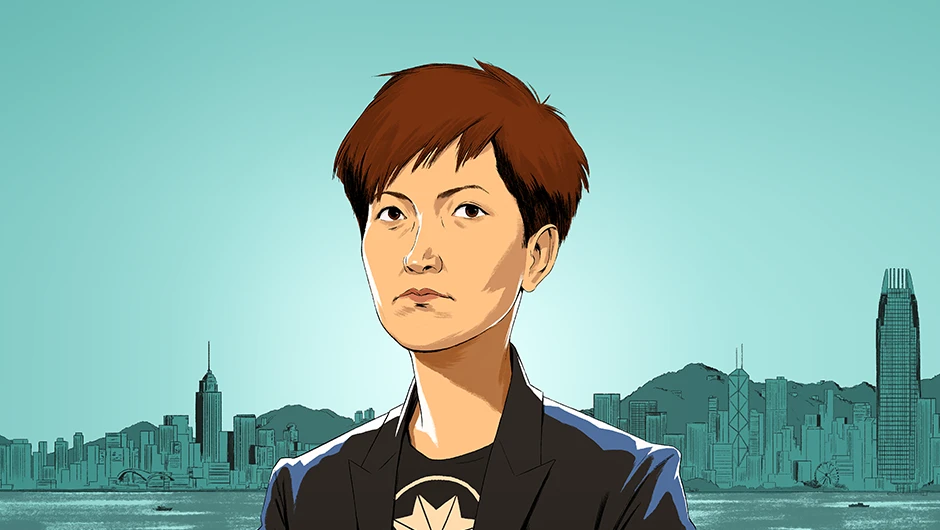
Despite progress over the past few decades, women in Asia still face significant, structural barriers to success. Ahead of International Women’s Day 2020, Nikkei Asian Review has selected 11 inspiring female leaders in business, politics, activism and the arts -- pathbreaking women who are driving change.
DENISE HO WAN-SEE, HONG KONG
Singer and activist
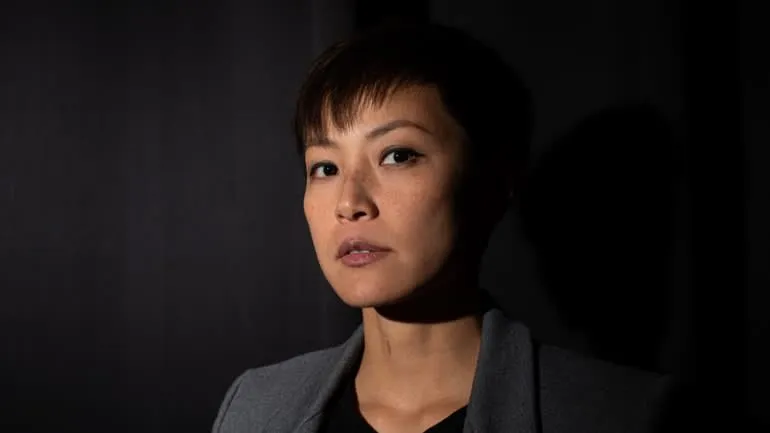 © Getty Images
© Getty Images In the sea of masked, black-clad protesters rallying on the streets of Hong Kong, there is always a familiar face in the crowd. Cantonese pop diva Denise Ho Wan-see has been at the forefront of Hong Kong's fight for freedom since the former British colony was handed over to China in 1997.
Her participation in the "Umbrella Movement" in 2014 -- a 79-day mass sit-in to call for universal suffrage -- came at a huge personal cost. She has since been banned in the lucrative mainland China market, dropped from sponsorship deals and even by her record label.
Six years on, the 42-year-old Ho is now a prominent ambassador for Hong Kong's leaderless democracy movement. As street protests rumbled across the city last year, she went on a global tour to speak on behalf of her comrades at home, giving speeches at a host of conferences overseas, including the Oslo Freedom Forum, the United Nations Human Rights Council and the U.S. Congressional-Executive Commission on China.
"The main message I want to deliver is that Hong Kong protesters are actually in a global fight for universal values," Ho told the Nikkei Asian Review. "This is a fight against suppression and censorship, which are also spreading to more and more old democracies. Therefore we should all stand with Hong Kong."
Ho is outspoken not only on the political front: In 2012 she became the first mainstream singer in Hong Kong to come out publicly as a lesbian. Her advocacy of LGBT rights in the sexually conservative society has made her a frequent target of hate speech.
"There have been many personal attacks based on my gender and sexual orientation," she recalled, "and people would undermine my words because of that. ... But it will only make me speak louder. It's horrendous. How ridiculous when people believe that [sexual orientation] is something they can attack you [for] in 2020."
"There have been many personal attacks. ... But it will only make me speak louder"
Denise Ho Wan-see, Cantonese singer and activistIt is an encouraging trend that women are taking an increasingly vocal role in social movements, Ho said. But speaking out can come at a price. She spoke of her friend Mai Khoi, a Vietnamese singer whose songs often center on resistance and women's rights, and who resorted to underground performances after becoming an enemy of the government.
"It is devastating to see what my friend is going through," she said. "I imagine this is an equally difficult fight for many out there, especially those from repressive countries where women are not supposed to speak up."
Democratic rights -- including people's right to choose their leaders -- are essential for promoting gender equality, Ho argues, citing rights for sexual minorities as an example.
She said LGBT rights in Hong Kong have not advanced at all since she came out eight years ago, while in Taiwan, where the government is democratically elected, same-sex marriage has been legalized.
"This is exactly why we need to fight for democracy and a system in which everyone's voice is well-represented," Ho said. "It is not just about gender rights, but also human rights and all kinds of rights people think they deserve."
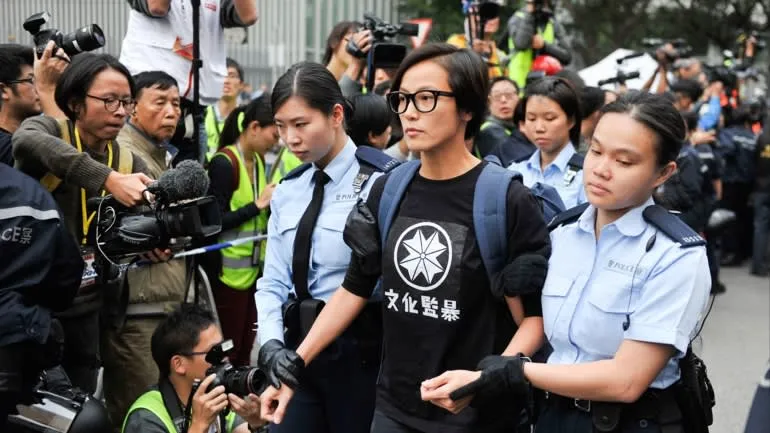 Denise Ho in 2014, being arrested and escorted by police from Hong Kong's Occupy Central protests. © Getty Images
Denise Ho in 2014, being arrested and escorted by police from Hong Kong's Occupy Central protests. © Getty Images For now, Ho is juggling the arduous work of activism with her artistic career. She is in the process of producing a new album, which has been on hold for the past months due to the prolonged protests. Meanwhile, her advocacy is about to embark on a new phase, with Yale University and the Women in the World Summit in New York as her next destinations.
"International interest in Hong Kong is still high, even though the protests are not as high-energy nowadays due to the [coronavirus] outbreak," she said. "The sentiment is definitely staying, and I am almost sure that things are going to pick up again once the right timing comes."
While street battles have quietened down, Ho believes it is "not only what's happening on the streets that counts," but more importantly, how people "live that spirit in daily lives."
Music is one of the ways to pass on the spirit, Ho said. As she composes new songs inspired by the pursuit of freedom, she hopes that people around the globe, especially women, can gain the courage to speak up and speak their minds.
"My words to these girl fighters are, please remember we are not alone in these fights," she said. "Although we don't know each other and might not ever see each other, we are fighting the same fight together." -- MICHELLE CHAN
AMINA SUGIMOTO, JAPAN
Co-founder and chief operating officer, Fermata
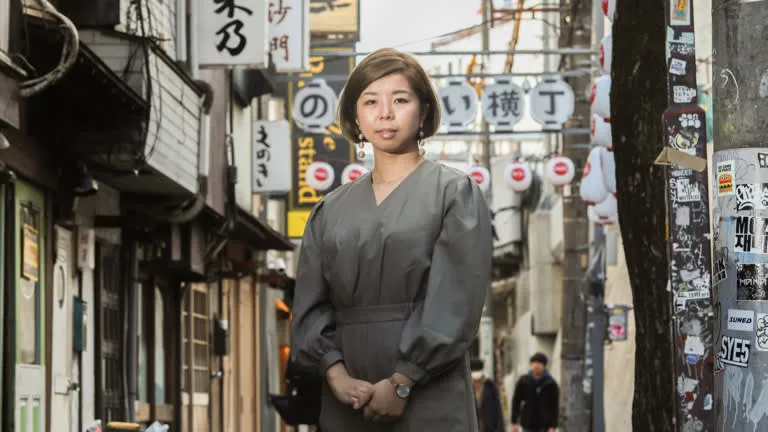 (Photo by Yuki Kohara)
(Photo by Yuki Kohara) Throughout her childhood, Amina Sugimoto moved around the world, first following her parents' work in international development and then as a student. She aspired to be a doctor, but during pre-med training she decided that she was just too squeamish to practice medicine. Instead, she studied health care economics, obtaining a Ph.D. at the London School of Hygiene & Tropical Medicine.
Returning to work in Japan again in her late 20s, Sugimoto, just like many other women, said that she felt the pressure to think about marriage, having children and building her career. She joined Mistletoe, a Japanese venture capital fund led by Taizo Son -- brother of SoftBank Group founder Masayoshi Son -- where she was introduced to the U.S. startup Modern Fertility, which offers home hormone tests that give women better insight into their fertility.
"I was not interested in feminism at all," Sugimoto said. "Our work is not really about spearheading feminism. It is more of, like, isn't it interesting to know a little bit more about your body?"
Looking into the emerging "femtech" field, she found that there was little appetite among existing investors. Venture capitalists, including those in Mistletoe, were predominantly male and "simply do not understand" the products that are about female bodies, she said. Even though the sector clearly has potential -- consultancy Frost and Sullivan predicts that the market could be worth $50 billion by 2025 -- investors are still not backing startups. "They are waiting in line to see who would go first," Sugimoto said.
Sugimoto has set out to change that. Last year, along with co-founder Hiroko Nakamura, she set up Fermata, a community for femtech entrepreneurs and users. By November this year they will have moved into actively supporting startups with a new 2.5 billion yen ($23.1 million) fund. Taizo Son is an early investor. The fund will look for investments across Asia, and attempt to seed a market that, Sugimoto said, does not yet exist -- in part because the subject of women's health often remains taboo.
"For [women's wellness and sexual wellness], problems are not verbalized because no one is talking about them," Sugimoto said. "Unless they are put into words and put into questions, people do not buy even the best product. What I mean is, there is no market." -- AKANE OKUTSU
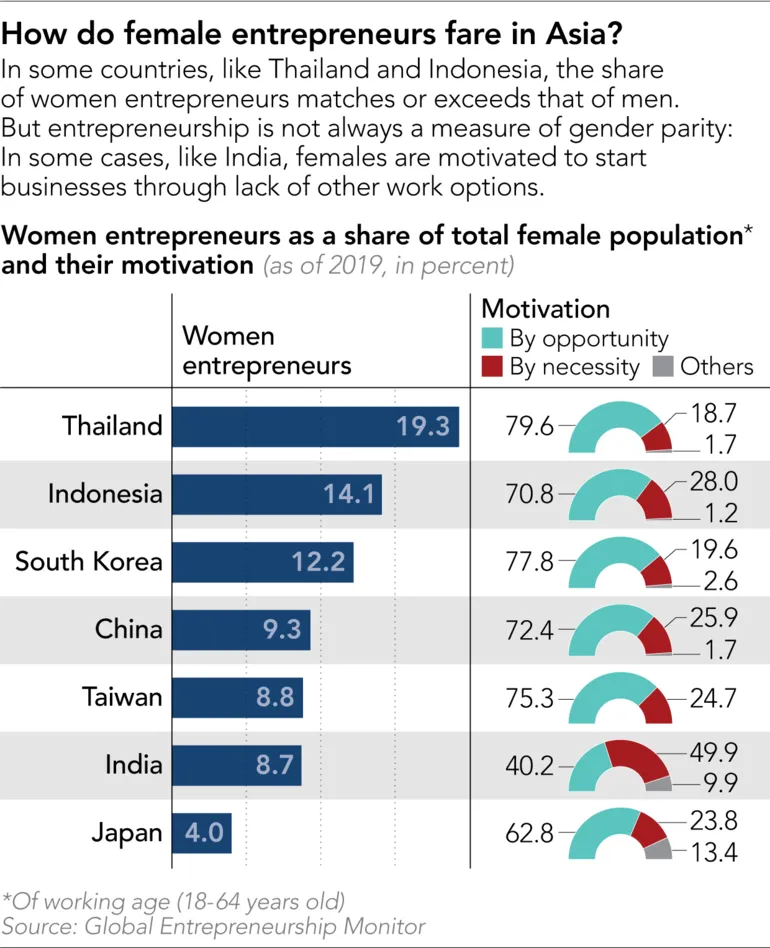
KAO CHIA-YU, TAIWAN
Lawmaker
 (Photo by Lai Yung Hsiang)
(Photo by Lai Yung Hsiang) When Kao Chia-yu began her 2009 bid to become a city councilor in Taipei, aged 29, she had no money, no support from within the Democratic Progressive Party of which she was a member, and no profile among voters. Rather than buying ads on buses, TV commercials and banners, like other candidates, she went out into the community, meeting voters at parks, markets and restaurants. She rang doorbell after doorbell, followed garbage trucks on their routes around the city and reached out through social media platforms. It was her third attempt at achieving public office, and, she said, it felt like her last chance.
"At that time, I was at the crossroads of my career," she told Nikkei. "Most of my classmates had become lawyers, prosecutors and judges. ... But I wanted to give myself a last try in my own way, as I really love to talk to people and help people solve problems."
Kao went on to win three consecutive council elections, and this year took a seat in the national legislature. Her star is still rising. With a national profile, she is viewed as one of the likely challengers for the post of Taipei City mayor in 2022, a position that is often a steppingstone to higher office. Her approach to engaging voters, mixing digital platforms with ground-level interactions -- such as livestreaming her breakfast at small cafes -- has been widely imitated.
Even though Taiwan has a relatively strong record of women's participation in politics -- 40% of lawmakers are female, the highest in Asia -- women still face cultural and social barriers to high office. Balancing family life with front-line politics is difficult, and there are choices to be made. Two powerful female politicians, President Tsai Ing-wen and Presidential Office Secretary-General Chen Chu, an activist who spent more than six years in prison, remain single. When seeking reelection, former New Power Party lawmaker Hung Tzu-yung was criticized by Foxconn Technology Group founder Terry Gou of being "busy with getting married and having a child" -- a criticism not faced by male politicians.
"I don't owe anyone any favors, but I also don't have anyone to count on"
Kao Chia-yu, Taiwanese lawmakerKao has faced down critics from within the DPP over her lack of experience. Attempts to sideline and belittle her have been met with characteristically blunt straight-talk. She is still seen as an outsider, dubbed a "lone bird" -- a description she seems to embrace.
"I don't owe anyone any favors, but I also don't have anyone to count on," Kao told Nikkei. "I only have myself, as always." -- CHENG TING-FANG, LAULY LI
SRISHTI BEHL ARYA, INDIA
Director for international original film, Netflix India
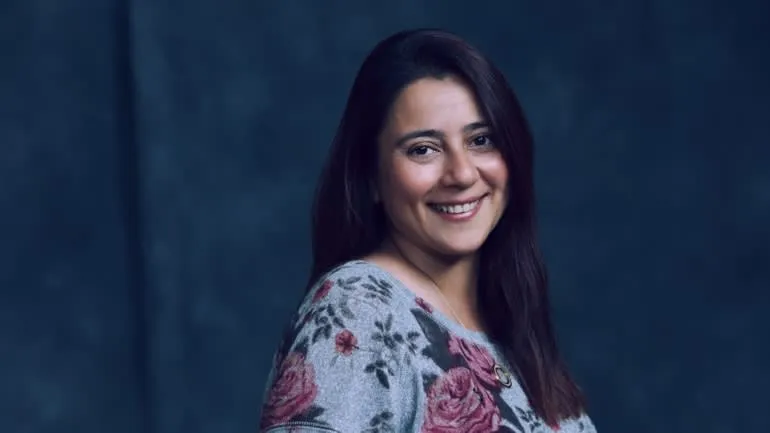 (Photo courtesy of Netflix)
(Photo courtesy of Netflix) On the cover of her MacBook, Srishti Behl Arya has a sticker that says: "On an adventure." Ever since she was brought on board by streaming giant Netflix to head international original film in India in May 2018, that has been her life.
"I have the best job in the whole world," she says. "I get to enable creators to tell the best stories of their lives on the best service they can."
That means that on any given day Behl Arya, 47, is wading through scripts, pitches, books, concepts, all the while looking to connect directors and storytellers. "India is a land of storytellers and we have the problem of plenty," she said.
India has 451 million active monthly internet users, the highest in the world after China, thanks to an explosion of cheap data and affordable smartphones. And Netflix, which launched in India in January 2016, is just one of 30 streaming platforms trying to draw some of those eyeballs. Video streaming service Amazon Prime, The Walt Disney Co.-owned Hotstar and homegrown platforms like Zee5 and ALTBalaji are some of the others in the race for viewers. Disney's streaming service Disney+ will be joining the fray on March 29.
In the past year alone, Behl Arya's unit -- which she co-leads with Aashish Singh -- has announced 17 films. For some of them, Behl Arya has turned to her Bollywood pedigree. The daughter, and granddaughter, of filmmakers -- she also ran a production house with her brother before joining Netflix -- Bollywood is home. For others, she's brought on new writers and directors.
Her mantra is to have "content for every mood," says Behl Arya. That requires "not just diversity of content, but diversity of minds, because that's how you get the real differentiation," she says. For that she has recruited two debutante female directors, three female producers, as well as many women writers who have created female protagonists. This is rare in an industry which has for decades been entirely controlled by men, and has rarely, if ever, told stories from a female perspective.
Behl Arya agrees that because she works at Netflix, she can "lean much more into risk." Bringing on board diverse voices, she said, "is a privilege. I use that word a lot, but I live in a lot of gratitude." -- MEGHA BAHREE
POCKET SUN, CHINA/U.S.
Co-founder and managing partner, SoGal Ventures
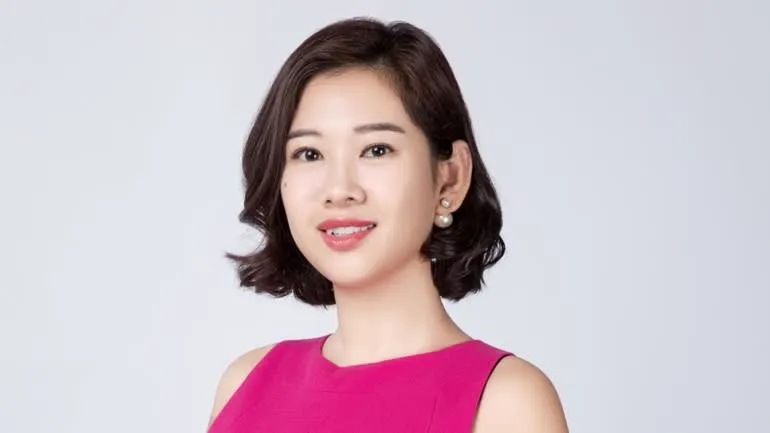 (Photo courtesy of Pocket Sun)
(Photo courtesy of Pocket Sun) Pocket Sun's journey into venture capital began when she lost her job. Back in 2014, Sun, a Chinese native, fell afoul of the U.S. visa lottery and had to leave her job. She signed up for a master's degree program, thinking it would buy her time while she looked for a chance to get back into the corporate world.
As soon as she set foot in the University of Southern California to study entrepreneurship and innovation, she "felt out of place," she told Nikkei. Most of her classmates were male, as were the entrepreneurs who visited to share their experiences.
"Those male entrepreneurs were extraordinary people, but I just found it hard to connect with their stories," Sun said.
In search of like-minded female entrepreneurs, she founded the SoGal Foundation in late 2014, a "women for women" business community. What started out as a high-tea party in a classroom at USC has now become one of the largest businesswomen's networks in the world, counting more than 100,000 members.
In 2016, along with Elizabeth Galbut, Sun founded an investment fund, SoGal Ventures, to support women-led startups and to overcome the structural bias against women in the VC business. In 2019, female founders attracted less than 3% of all the VC investing in the U.S., according to industry information portal PitchBook.
At first, Sun used her own savings, working as a consultant and doing public speaking to make money, but was able to bootstrap $14 million from outside investors. Although the size of their fund is small, Sun believes it can make a real difference in shaping the future of technology. For now, fewer than 10% of decision-makers at U.S. VC companies are women, according to a 2019 Axios analysis.
SoGal has backed 24 women-led startups so far, including a company making customized prosthetic breasts for cancer survivors, and another that supplies kits for rape victims to collect evidence at any time, sparing them from spending hours finding a designated clinic that runs the tests.
"Venture capitalists have a say on which technology would be developed, and how society is evolving," Sun said. "If this decision-making process is only led by one voice, it is unfair to the rest of the world." -- COCO LIU
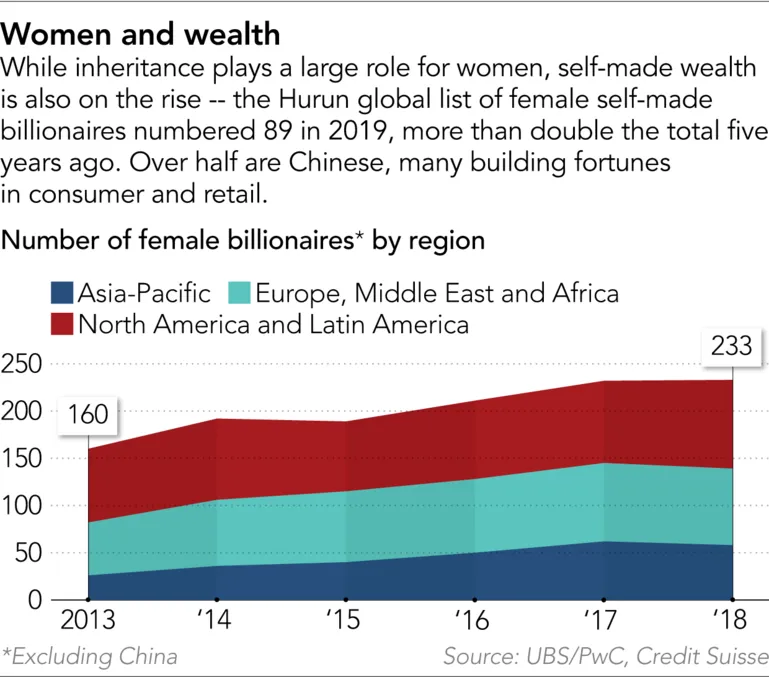
LI YANG, CHINA
Co-founder, Prop Roots Education Center
 (Photo courtesy of Li Yang)
(Photo courtesy of Li Yang) Li Yang says that she is the mother of some 200 children. In 2009, after visiting Jingpo communities in the southern Chinese province of Yunnan with her husband, a Dutch linguist who was studying the Jingpo language, Li found herself drawn into the life of the indigenous group. A Beijing native, Li was impressed by the Jingpo children's knowledge of the natural world, and the depth of their culture. She also discovered a darker side to life.
Drug addiction has become rife in Dehong -- a border region a stone's throw from Myanmar, home to most of China's 150,000-strong Jingpo population -- and the community is in the midst of an identity crisis. They can no longer make a living with their centurieslong hunting tradition, but equally, they have been left behind in China's rapid march toward modernization. Li, who called the situation "heartbreaking," decided to take the matter into her own hands, and started Prop Roots Education Center, a nongovernmental organization that has supported 200 local children.
Every day, children come to a bamboo house in Yinping village to listen to stories, do their homework, and to prepare for urban life through training and roleplay. About 98% of the children Li taught have managed to stay away from drugs, while that figure is less than 50% in nearby villages. Li attributes the difference to her parenting role. "What rural children really need is not money, but our company," she said. -- COCO LIU
GARIMA ARORA, THAILAND
Chef and co-owner, Restaurant Gaa
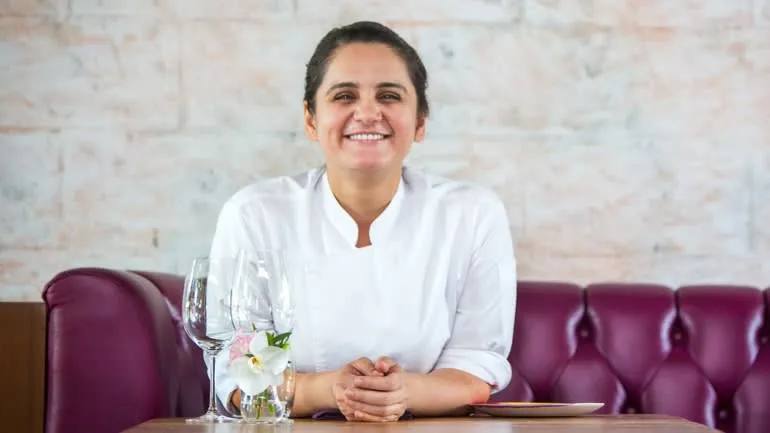 (Photo courtesy of Restaurant Gaa)
(Photo courtesy of Restaurant Gaa) Garima Arora moves quickly. By the age of 29, she had already left a career in journalism to work under the infamous Gordon Ramsay at Verre, then Noma's Rene Redzepi. By 32, her Thai-Indian fusion restaurant in Bangkok, Gaa, had garnered a Michelin star -- a first for an Indian woman -- and debuted on Asia's 50 Best Restaurants list. That same year, she was also awarded the title of Asia's best female chef. Even so, "ambition doesn't have a gender," she told Nikkei.
A handful of women hold the prestigious tally of three Michelin stars, compared to over a hundred male chefs. "I don't think there's any conspiracy to keep women out of the kitchen ... but the truth is, it's very hard for them to stick around," said Arora. "At some point in their lives, they have to choose between working these crazy hours and having a family, and it's impossible to have both. Women are forced to make unrealistic choices."
In her childhood, Arora's father planted the seeds of an obsession with food, as he traveled for work as an event organizer and returned with exotic flavors for his Mumbai-based, Punjabi family. At Gaa, Arora plays with the boundaries of her native cuisine, her upcoming menu asking customers to eat with their hands as they move through five "feasts," from refined hawker fare to seafood.
The chef also ties her rise to lessons learned with Ramsay -- "humility" -- and Redzepi -- "food as an intellectual exercise" -- combined with an instinct to challenge. "I've carried my curiosity throughout my whole career. In everything that I do, I think about it and constantly question it." -- SARAH HILTON
NICOLE YAP, INDONESIA
Managing Director, Digitaraya
 (Photo by Dimas Ardian)
(Photo by Dimas Ardian) Nicole Yap's parents moved from Indonesia to Canada before she was born. Although she had visited regularly, it wasn't until she took part in MIT's Global Startup Lab in 2013, teaching entrepreneurship at Gadjah Mada University in Indonesia's Yogyakarta Province, that she began to think about the country's business potential. She returned to North America, working as a global health consultant in California, and spent some time in Nairobi at a social enterprise.
Then, during a trip to Indonesia in 2017, she saw that the landscape had changed completely. Ride-hailing startup Gojek had become a unicorn -- a private company valued at more than $1 billion -- and the technology sector was buzzing.
"I feel that there are a lot more interesting problems to be solved here in Indonesia, and that tech and entrepreneurship and startups can do a lot more to actually solve these challenges," she said.
Along with her co-founder Yansen Kamto, Yap launched startup accelerator Digitaraya in 2018. Nearly 100 startups from 12 countries have participated in its programs to date. Digitaraya is the exclusive partner of both Google for Startups and Google Developers Launchpad in Indonesia, and is also a partner to UBS, Indonesia's ride-hailing giant Gojek, and largest private lender Bank Central Asia.
The accelerator's success has established Yap, 34, as a leading figure in a male-dominated industry. Aware that having a strong network is important for women, only a few of whom have senior positions in the industry, Digitaraya has established Simona Ventures, an accelerator program dedicated to women-led startups.
"We think ... having a community of women that they can actually share with, learn from, connect with is even more important in this industry," Yap said. -- ERWIDA MAULIA
ENI LESTARI, INDONESIA/HONG KONG
Chairperson, International Migrants Alliance
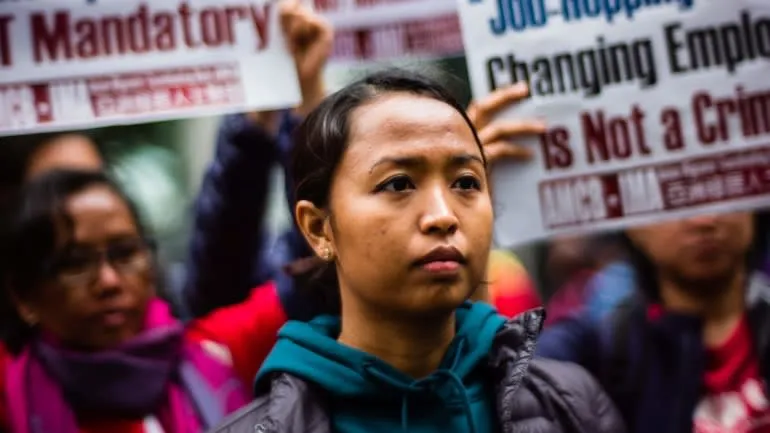 © AFP/Jiji
© AFP/Jiji Eni Lestari had always dreamed of going to university, but when the Asian financial crisis hit her native Indonesia, she had to abandon her studies and search for jobs overseas to bail her family out of debt.
Eni first arrived in Hong Kong to work as a domestic helper in 1999, only to find herself deprived of basic labor rights. "I was paid half of the minimum wage and no holiday was given," she said. "I didn't know anything about the regulations in Hong Kong, so it took months for me to find out I was actually tricked by my employer and the agency."
A friend introduced Eni to a nongovernmental organization offering legal aid and shelter to migrant workers. Living there, she volunteered to answer the counseling hotline; in doing so, she noticed that many helpers were facing similar ordeals in the city.
In 2000, she established the Association of Indonesian Migrant Workers, and is now the chairperson of the International Migrants Alliance, a global association with more than 4,000 members. In 2016, she was chosen to address the first United Nations summit on refugees and migrants in New York. And this is only her side job -- she is still working as a helper on weekdays.
"Knowledge can be so empowering," she said. "In the past, some girls just cried to us and returned home doing nothing. Now, there is a community, both online and offline."
Eni said she hopes other helpers will not give up on learning and self-enrichment because of the nature of their jobs. "You'll never know your possibilities if you don't explore." -- MICHELLE CHAN
AKIKO NAKA, JAPAN
Founder and CEO, Wantedly
 (Photo by Kaisuke Ota)
(Photo by Kaisuke Ota) Akiko Naka's career path, jumping from Goldman Sachs analyst to would-be manga artist to Facebook marketer, is not unthinkable for any hungry person in her early 30s. But in her home country of Japan, it has been wildly unorthodox. "For my grandparents, maybe 80% to 90% of them worked for a company. If you changed jobs, or quit, you were considered an outcast," said Naka.
For her peers, that is changing. Naka's job-matching platform, Wantedly, has signed up 34,000 small to midsize companies and has a total user base of 4 million. Job posters do not mention salary -- instead, they advertise by vision and values, challenging the once-a-year-hiring, job-for-life model that undergirds Japan's rigid labor system. Wantedly, founded in 2010, first struggled with resistance from human resources departments that have gradually adopted the service; now, it is listed on the Mothers board for startups, where it has also seen ups and downs.
Fueled by a recent rise in domestic angel investors and venture capital, Naka's is among a small upswell of startups seeking to change the business models of century-old enterprises. "Historically, Japanese people -- we're not willing to make change until it starts to overflow," said Naka. "At some point it snaps, and you have to make change all at once." -- SARAH HILTON
ROSSANA HU, CHINA
Founding partner, Neri & Hu
 (Photo courtesy of Neri & Hu)
(Photo courtesy of Neri & Hu) Rossana Hu was born in the southern Taiwanese port city of Kaohsiung and moved to the U.S. at the age of 12. After studying architecture and music at the University of California, Berkeley, and receiving a Master's degree in architecture and urban planning from Princeton University, she worked for major architecture companies in the U.S. before founding her own practice, Neri & Hu, with partner Lyndon Neri, in Shanghai in 2004.
"[A] client requested to have Lyndon's physical presence there for a short stay; the short stay led to a long stay, and we realized how much we would be able to contribute and be a part of an exciting era for Chinese architecture, so we made the move," she told Nikkei.
Neri & Hu has established itself as one of Asia's leading architecture and design practices, merging traditional Chinese design with modern touches. Hu and her partner are the masterminds behind the flagship store of South Korean skin-care brand Sulwhasoo in Seoul, Alila Bangsar, a five-star hotel in Kuala Lumpur, and the New Shanghai Theatre.
"Architecture has never been an easy profession for women," Hu said. Earlier in her career, she was often the only young woman working on projects. However, Neri & Hu has more senior female architects than men. "We have been blessed to not foster a biased working environment for the young staff in our office," she said.




















